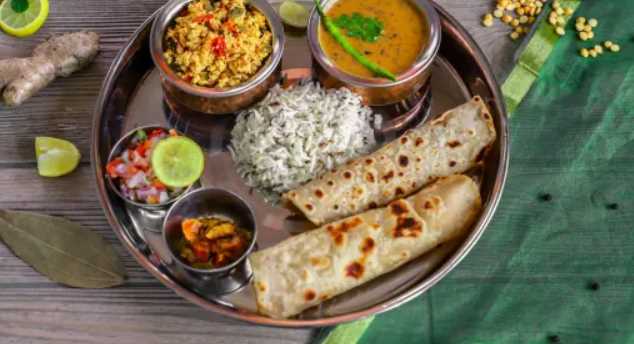Eateries and food stalls have been surfacing aplenty in every nook and corner of the city but getting a license from the FSSAI is a step often forgotten in the haste of starting something new. Food licenses are issued by the FSSAI (Food Security and Authority of India) – a central body regulating and governing food standards in the country. A 2019 report by NRAI India Food Services found that only 467,000 food joints in the country out of 2.49 million possess an FSSAI license. These included eateries, streetside dhabas, restaurants, and more.
Similarly, a survey conducted by the ET Bureau found that almost half the restaurants listed online on food delivery platforms like Swiggy, Foodpanda, Foodmongo, Zomato along with others did not have licenses. A deadline was given to meet the Food Safety and Standards Authority of India’s deadline and obtain a license but they were not able to do so within the given time. The reason this issue came to the notice of authorities was due to multiple complaints received about the food quality that customers were receiving when they purchased from the online platforms.
This led to the delisting of several food businesses that were non-FSSAI licensed. This incident has also brought to light the need to conduct audits of e-commerce food aggregators to ensure that food hygiene and safety are maintained. That is why, even during the pandemic, Swiggy, Zomato and others have made it a point to mention the safety measures taken to ensure the safe delivery of food and prevent the spread of COVID.
One of the primary reasons for food operations not getting their licenses was the process being time-consuming and lengthy. Thus, eateries were choosing to avoid the hassles of it rather than find their way through the cumbersome process. If no issues are found, obtaining the license takes about two months, however, the FSSAI has permitted food businesses to function even if the license registration is in process. Now, with the process being online, registering for a food license is no longer tedious, so if you are a food business operator (FBO), knowing how to obtain a food license is an absolute must.
With businesses moving online, the ability to apply for a food license online makes things a whole lot easier. If you’re wondering whether it is mandatory to get a food licence in Madhya Pradesh,
the answer is simple. By assuring customers of fixed quality standards, it ensures healthy eating options which help food businesses grow their customer bases. The FSSAI logo automatically carries a quality assurance that other food joints or manufacturing units would not be able to boast of. Thus, this affiliation can positively impact the image of the business.
Getting a food license will certainly be more beneficial than getting penalized for opening a food-based enterprise without a license. But another significant benefit of getting a license even before you open your food enterprise is the fact that your business becomes eligible for loans and other funding options which will, in turn, assist in expanding one’s business.
What does the licensing process entail?
Whether you are starting a small food enterprise or a production unit of milk and other solid foods, having a license ensures that all the processes involved in the making, packing, and transport of the food meet a certain standard which boosts the confidence of the purchaser.
The process of getting a food license involves filling an online form. The form requires specifics about the food business. Food verification also takes place at the time of registration. After this, they generate the license if they find the food safe to consume. By logging in to the online portal, you can obtain the certificate once it’s ready. Based on the duration of the license, store owners can even handle the FSSAI renewal online application process. When it comes to the registration fee, there are slight variations, depending on the scale of the business and the number of goods the business incorporates.
Which food license can you apply for?
While there is still a lot of doubt and confusion about the type of license to opt for, the options are simple. There are three kinds of food licenses – Central License, State License, and Basic Registration – the only difference is in terms of the kind of business they are running.
Broadly speaking, a Central License will deal with FBOs that exceed a turnover of 20 crores annually. This can cover large manufacturers, export-based units, importers, and other such large food-related businesses. FBOs operating in more than one state will have to obtain a Central License.
Food enterprises that exceed a turnover of 12 lakhs per annum need an FSSAI State Licence. However, this applies to businesses operating in only one state which includes medium-scale manufacturers, storage units, retailers, distributors, etc.
For people who cannot get through the MSME Act, they prefer getting through the Udyog Aadhar because it is a simple process as compared to the former. There are other changes they have to get through but are a lot more convenient from a documentation point of view.
The third license is the Basic Registration which pertains to those food operations that do not exceed a turnover of 12 lakhs like small-time food manufacturers, storage units, retailers, etc.
Testing food and food-related processes are necessary to make sure there is no adulteration or toxic substances in what is consumed. There have already been allegations about adulteration and usage of unsafe ingredients. By getting your organization registered with the FSSAI, customers will understand that the food is edible and will not result in health conditions. The year 2021 saw around 40 people falling ill after consuming food at a public gathering, which makes it important to know the situations under which food is prepared, distributed, and stored, which are all significant factors in ascertaining whether the food is safe for consumption. Research has also found that the unorganized market is taking a severe toll on restaurants and food chains across the state and country. These properly registered businesses found themselves on the losing side with lower profits and excessive losses due to input tax credit being rolled back. However, with the FSSAI license becoming the norm, it is expected that the taxation rules and requirements of safety and quality will be far simpler.
In today’s day and age, people have become very particular about the food they eat. With health and fitness becoming part of everyone’s daily regimen, FSSAI has come into the picture to do its part in ensuring that all food-related businesses follow the required rules laid down for ensuring food safety.



